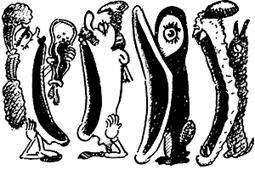人们常说打哈欠会传染,每次你一打呵欠,周围的人也会跟着打哈欠。难道哈欠真的可以传染,还是仅仅是巧合而已?我们来看看神经学家是怎么说的吧!
 "A yawn is an instinctive behavior: You don't have to learn to do it, and yawns are even present before birth." says Robert Provine, a professor of psychology and neuroscience at the University of Maryland, Baltimore County.
"A yawn is an instinctive behavior: You don't have to learn to do it, and yawns are even present before birth." says Robert Provine, a professor of psychology and neuroscience at the University of Maryland, Baltimore County.
When we see someone else yawn, we don't think to ourselves, "Well, I'll yawn, too." It just happens -- it's instinctive, and it's a very primal aspect of human behavior that goes back to ancient herd mentality.
Adelie penguins, for instance, employ yawning as part of their courtship ritual. The happy couples face off amid the ice floes and the males engage in what is described as an "ecstatic display," their beaks open wide and their faces pointed skyward.
It may be, therefore, that when your entry upon the scene inspires a round of uncontrollable yawning, you have merely stumbled onto a gaggle of Adelie penguins in disguise, who are signaling their powerful erotic longing for you. A slim hope, admittedly, but any port in a storm.
As for the larger question of why yawns are catching, nobody really knows. Fact is, we don't know why people yawn.
It was long believed you yawned when there was too much carbon dioxide and not enough oxygen in your blood. A part of your brain called the brain stem detected this and triggered the yawn reflex. Your mouth stretched wide and you inhaled deeply, shooting a jolt of oxygen into the lungs and thence to the bloodstream.
Subsequently, you exhaled a lot of CO2. Often you'd stretch while yawning, which seemed to temporarily improve circulation. You yawned and stretched a lot more when you got tired because your breathing slowed down.
Or so people thought. In recent years, though, a few radicals have said the preceding is allmalarkey. Who knows, they say, maybe we yawn because it's too warm in the room.
Cecil isn't about to settle the issue here, and he doesn't need to. We merely observe that whatever yawn-inducing conditions prevail for you also apply to your friends.
If you're out late in some crowded dive, you're probably all tired, all warm under the collar, and all breathing the same stale air. You're probably all on the verge of a yawn, too, and the power of suggestion from seeing one person do it is enough to push everybody else over the edge.
Adults rarely catch a case of the yawns from a child or animal, which tends tocorroboratethis idea.
Children usually have different sleep schedules and respiration rates from adults, so you would expect them to yawn at different times. Animals, on the other hand, often yawn not for physiological reasons but as a display of hostility, to which humans are evidentlyunresponsive.
malarkey: 胡说
corroborate: 确证,证明
unresponsive: 无答复的
(北京外国语大学通讯员谢丽供稿 英语点津 Annabel 编辑)